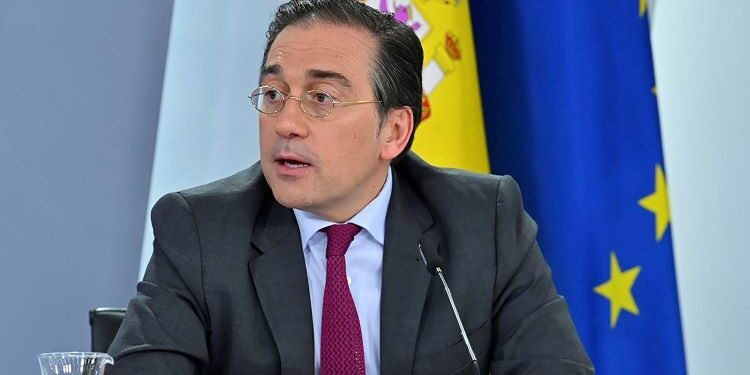Eduardo González
The Association of Spanish Diplomats (ADE) has asked the Minister of Foreign Affairs, José Manuel Albares, to explain the actions he will take to comply with the proposals of the Congressional Foreign Affairs Committee to strengthen the foreign consular network. It has requested a meeting to present its main concerns and lines of work, even though “more than six months have passed since we first requested it.”
On June 17, the Congressional Foreign Affairs Committee approved a Non-Law Proposal —presented by the People’s Party (PP)—which, citing an ADE report from last May, warns that “the Spanish consular network is suffering from a situation of functional collapse resulting from budgetary insufficiency and an exponential increase in the demand for consular services.”
For this reason, the Commission—with the PSOE voting against it—urges the Government to “implement a plan, with a defined timeline and budget allocation, that contemplates the creation of at least ninety new permanent diplomatic posts in the foreign network within a maximum period of two years, with the aim of strengthening embassies and consulates that urgently require an expansion of their staff.”
It also asks the Executive—in this case, with the favorable vote of Sumar, the PSOE’s coalition partner—to guarantee compliance with the 2014 Law on State Action and Foreign Service, “urging the Executive Council on Foreign Policy to urgently prepare a report on the adequacy of the deployment and structure of diplomatic missions, permanent representations, and consular offices.”
In a letter sent on June 25, the president of the ADE Board of Directors, Alberto Virella, asked Albares “what actions this Ministry will take” to comply with both measures, “taking into account that, as Minister of Foreign Affairs, EU and Cooperation, you hold the presidency of the Executive Council for Foreign Policy.”
He also reminded him that the first measure, relating to the 90 new diplomatic posts abroad (including the creation of deputy consul general positions in consulates general where there are none and a third diplomat in embassies where there are only two), is “necessary to strengthen these representations without delay” and could have “a positive effect on those diplomats who have not yet been posted abroad, after several years in central services.”
Regarding the second proposal (the urgent preparation of a report on the adequacy of foreign deployment), the ADE warns that “compliance is clearly inexcusable, as it is a legal mandate from 2014 that, however, has never been respected.” “This accumulated neglect does not exempt us from fully complying with it; on the contrary: doing so is now extremely urgent,” as “is, of course, compliance with the other mandatory reports mandated by the 2014 Law on Foreign Service and Action,” it adds.
Finally, the ADE Board of Directors takes the opportunity to reiterate to Albares “the request to hold a meeting” in order to present its “main concerns and lines of work.”
“More than six months have passed since our board was formed and since we first requested a meeting, without one taking place to date,” it states. “Given the role recognized for unions in our constitutional and legal framework, and given that the ADE is the union that represents six out of ten Spanish diplomats, we believe it is imperative to meet with the head of the Ministry. We therefore hope to do so as soon as possible and discuss with you in depth the situation of the diplomatic career and this key Ministry for the entire Foreign Service,” the letter concludes.







